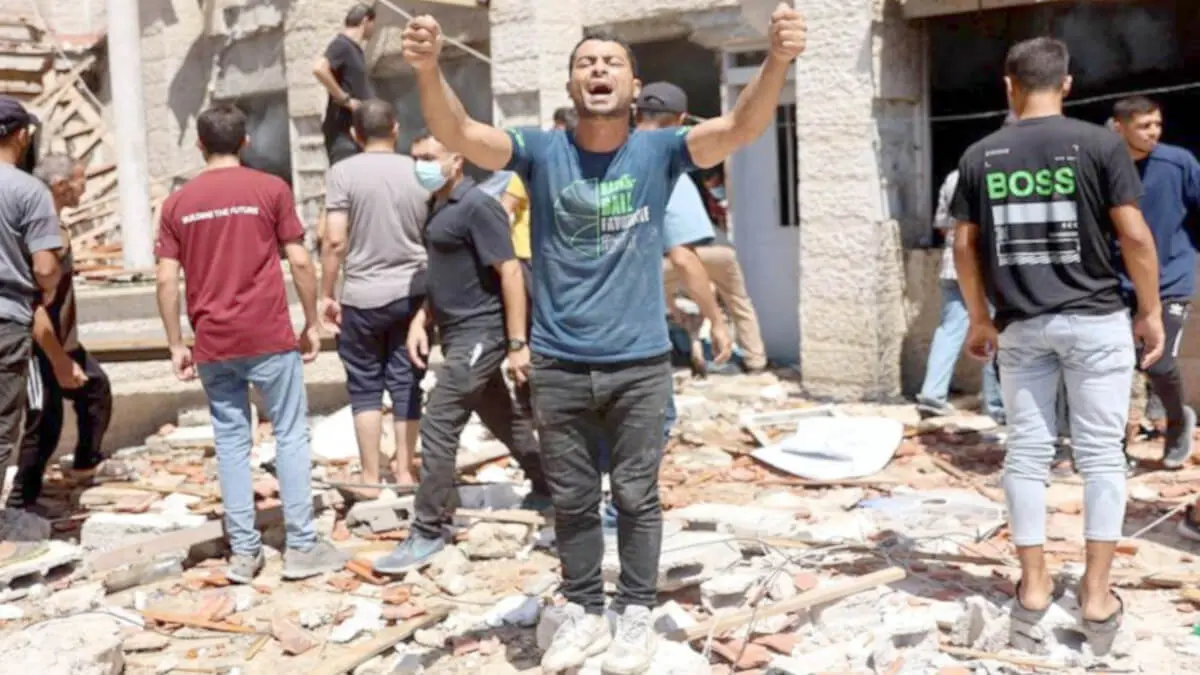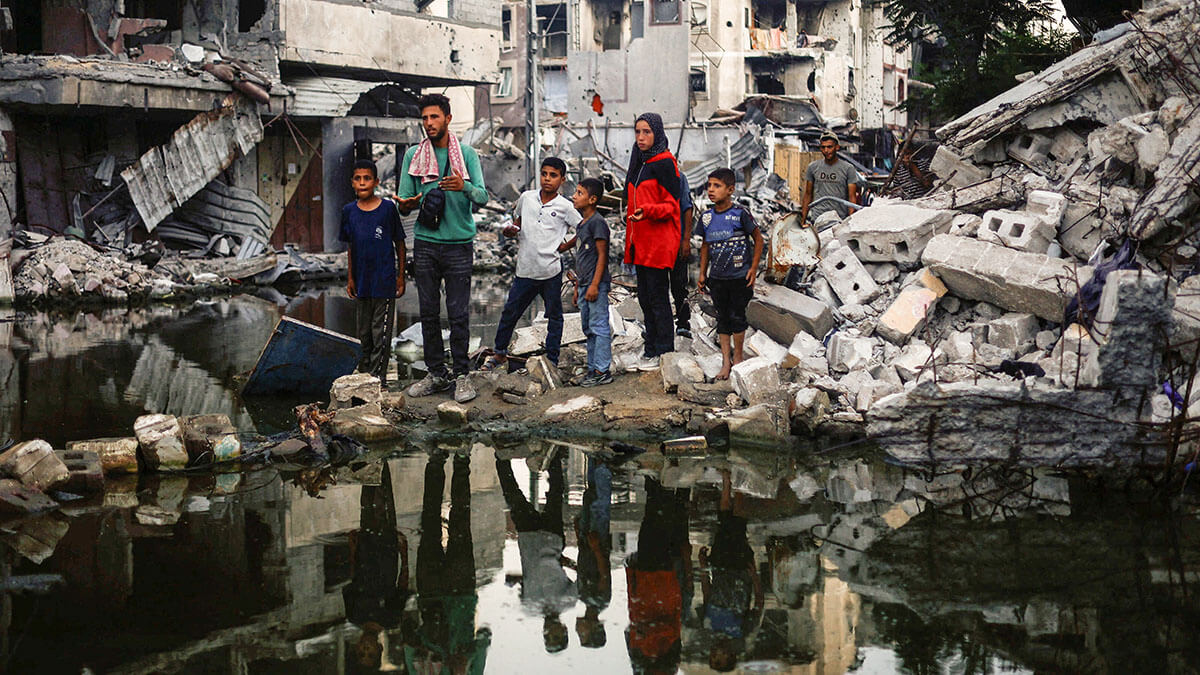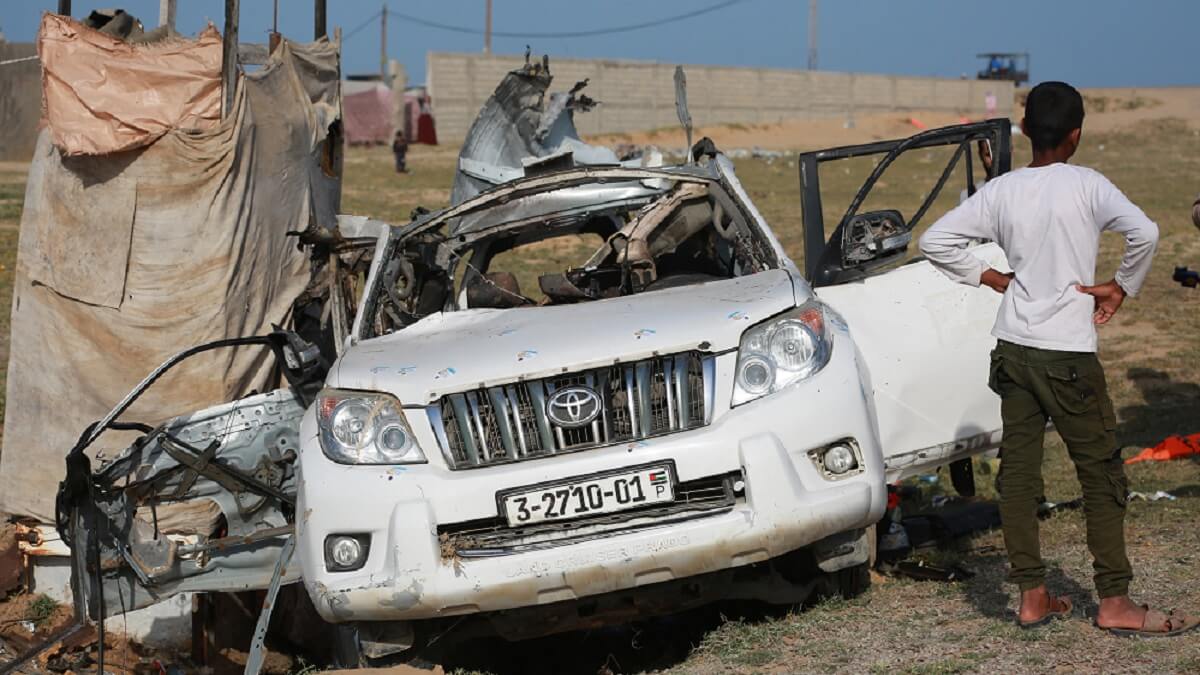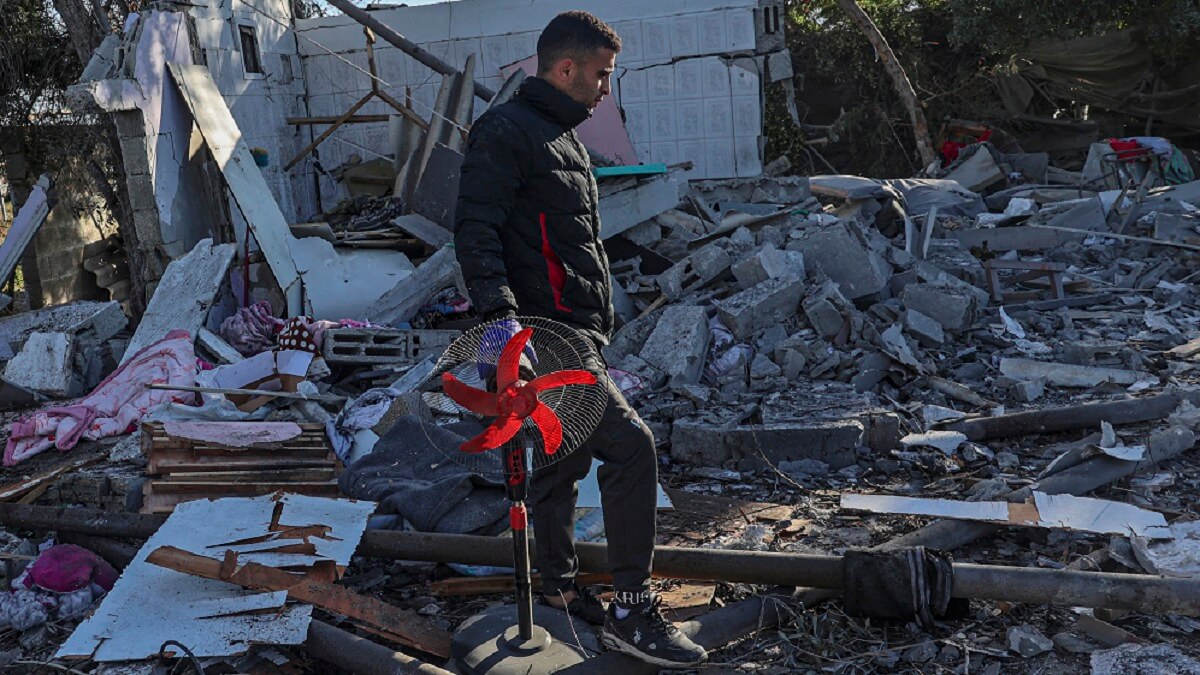Hamas’ undisputed real

Once a truce agreement is reached, the first item on the agenda should be to develop a recovery and reconstruction plan for the devastated enclave.
Senior Israeli military leaders realise that their list of targets intended for destruction in Gaza is running out. Other than a full invasion of Rafah with its high political, military, and human toll, there is not much for the Israelis to do militarily in the Gaza Strip.
No one knows how much strength Hamas still wields in the besieged enclave, but the presence of the remaining Israeli captives there, and the US pressures aimed at preventing Binyamin Netanyahu’s government from taking the decision to invade Rafah, have left the Israelis with virtually only one option, which is to accept the truce.
It was clear right after the first month of the war that the declared goal of destroying Hamas was beyond reach. Some of Israel’s top hardliners have begun admitting it is unrealistic to try to destroy the idea which Hamas represents. The last consideration that Israeli military leaders worried about was that the fate of a dubious politician like Netanyahu should be linked to the war.

Hamas is acting on the premiss that it will remain in control of Gaza after any post-war arrangement. The Palestinian Authority is too weak and has failed to put forward any credible post-war arrangement. Furthermore, all the PA’s attempts to carve out a territory in Gaza, by sending forces on security control and aid distribution missions, have failed. Hamas was quick to arrest those sent by Palestinian president Mahmoud Abbas to Gaza reminding everyone there is no place for Ramallah’s authorities in Gaza following any ceasefire. Arab mediators, especially Egypt and Qatar, did well not to involve the Palestinian Authority in truce negotiations. Any such involvement would have only further complicated the talks.
Hamas started the current war when it launched Operation “Al-Aqsa Flood.” It will be left to historians to determine how Hamas arrived at its decision to launch the attack, whether it was at the urging of Iran, because of its desire to draw attention to its cause after long Israeli and American neglect, or simply because of a major miscalculation.
What we know is that the total devastation visited by Israel on the enclave was in retaliation for the Hamas’ operation. Never in the history of the Arab-Israeli conflict, especially the Palestinian-Israeli conflict, have Arabs and Palestinians suffered such human losses (the Nakba War of 1948: there were 20,000 Arab and Palestinian military and civilian deaths; in the Suez War of 1956: 4,000 military and civilian deaths, in the 1967 war: 15,000 soldiers, in the October 1973 war: 18,500 soldiers and civilians; in the 1982 invasion of Lebanon: 19,000 armed militants, army soldiers and civilians were killed on top of 3,000 civilians in the Sabra and Shatila massacre. In comparison, the successive confrontations between Hamas and Israel, from after 2007 until 2023, resulted in a few thousand fatalities, while in the ongoing war there have been more than 38,000 Palestinian civilians and fighters killed, so far.)
Hamas believes that its mere post-war survival as an organised force in Gaza means victory. Arab regimes have deluded themselves in the past into believing that their survival, as they kept power, was synonymous with victory. Whoever makes this assumption cares little about the loss of life and the massive destruction stemming from total war. In Kuwait’s war of liberation in 1991, for example, most of Iraq’s infrastructure was destroyed, but homes were spared. In the ongoing Gaza war, the homes of Gazans were obliterated. Entire residential neighbourhoods were demolished without any consideration for the disastrous impact that would have on their inhabitants during or after the war. Hamas thought it could drag Israel into a truce within an abbreviated time after the world discovered the extent of the destruction in parts of Gaza. What it did not anticipate is that the Book of Exodus ‘principle of “life for life, eye for eye, tooth for tooth” would have no place in Israel’s retribution. Israeli leaders were instead reading the book of Samuel and getting their inspiration from its notion of total annihilation.

According to the narratives promoted by “the Axis of Resistance”, the Iranian-led collection of militias in the Middle East, the Palestinians must pay the price for their freedom. From this point of view, war is necessary, and its human and material losses are part of their process of liberation. The axis narratives are strewn with references to Hamas’ need for an occasional truce so that it can catch its breath and continue the war at a later stage. This stunningly naive assumption suggests that Israel and the entire world are moving according to Tehran’s pace.
There are many presumptions stemming from the various scenarios of the ongoing war and related negotiations. But the basic presumption is that Hamas will prove resilient. After fighting Israel from the Gaza tunnels, Hamas and its leaders will declare victory as a truce deal is agreed and captives exchanged. There is no place in this scenario for a Palestinian Authority seen as complicit with the occupation, or for Arab or international peacekeeping forces. It is not clear how long Israeli forces will remain in Gaza or on its borders and to what extent they will be allowed to violate truce agreements when they deem it appropriate. It is not clear what will be the status of the northern front between Israel and Hezbollah and whether it will include any truce deal or if Hamas will eventually return to fighting Israel alongside its Lebanese ally. Another question is what the Houthis in Yemen and the Popular Mobilisation Forces in Iraq are prepared to do.
Once a truce agreement is reached, the first item on the agenda should be to develop a recovery and reconstruction plan for the devastated enclave.
The Hamas post-war narrative assumes all sides should contribute to financing the reconstruction, even if they cannot express their views about the war’s decision. Just as Hamas warned the Palestinian Authority that it is barred from Gaza, it has also reminded tribal leaders and businessmen in Gaza that there is only one authority which will decide how the reconstruction process is to be managed and that they will have no role to play in any future arrangement, even with Hamas’ closest allies, such as the Qataris or the Turks.
Hamas, then, is the one who makes the decisions about war, ceasefire and the exchange of captives. It is the one who declares victory, and it is the one who accepts the congratulations after declaring victory. It is the one who receives the reconstruction funds. No one else is allowed to play any role, the narrative assumes.

As we leave power in the hands of Hamas after the war, we are bound to remember how the militant group had been creative in building tunnels, for more than a decade.
It will be instructive for the population of Gaza to see the level of ingenuity of Hamas in removing the rubble and starting reconstruction. After donated reconstruction funds replenish Hamas’ coffers, the population of Gaza will see for itself how much of these funds will be spent on rebuilding hospitals, re-opening roads, repairing damaged infrastructure, schools, marketplaces, and workshops, and helping people rebuild their homes destroyed during the war, compared to how much of this money will spend on rebuilding the enclave’s tunnel network, purchasing weapons and paying the salaries of combatants. How ironic!
Hamas disposes of the fate of the people of Gaza as it pleases. This is what it has done since its 2007 coup, and by launching Operation “Al-Aqsa Flood” and then negotiating a truce with the Mossad and the Americans with the help of Qatari and Egyptian mediators. It now is determined to make sure that nothing will prevent it from reimposing its hold on Gaza, and that anyone who tries to place itself between Hamas and the Palestinians of Gaza, even if it is a Palestinian member of Fatah, a tribal leader, a businessman, or an Arab country, whatever his intentions, will be deemed an enemy. Given the circumstances; can anyone still argue that there is somehow an alternative left to Hamas’ ruling of Gaza?
Haitham El Zobaidi is the Executive Editor of Al Arab Publishing House.

